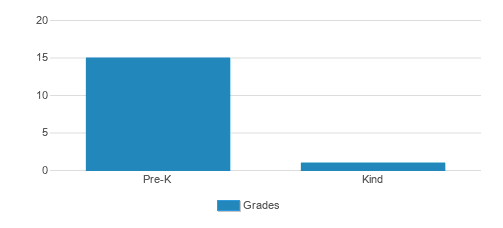The Anne Frank Montessori School encourages the full development of the child in a caring environment.
School Overview
School Type
Grades Offered
Grades Prekindergarten-Kindergarten
Summer School Offered
Yes
Student Body
Total Students
16 students
Student Body Type
Co-ed
% Students of Color
100%
State avg.: 40%
Students by Grade

Academics and Faculty
Total Classroom Teachers
2 teachers
Student : Teacher Ratio
8:1
National avg.: 13:1
Average Class Size
14 students
Tuition and Acceptance Rate
Admission Deadline
None / Rolling
Tuition Notes
Tuition varies for full or 1/2 day program
Admissions Director
Carolyn Larcy
Extracurriculars
Total ExtracurricularsTotal Extra-curric.
1 extracurricular
ExtracurricularsExtra-curric.
Music and dance
School Notes
- A.M.I. trained Montessori teachers A.M.I. approved materials
Source: Verified school update
Frequently Asked Questions
When is the application deadline for Ann Frank Montessori School?
The application deadline for Ann Frank Montessori School is rolling (applications are reviewed as they are received year-round).
Recent Articles

A Parent's Guide To Understanding High School Teaching Methods
This comprehensive guide helps parents navigate the various teaching methods used in today's high school classrooms. By understanding these approaches, you'll be better equipped to support your teen's learning journey, communicate effectively with teachers, and create a complementary learning environment at home.

February 08, 2025
Social Emotional Learning: Education's Hidden SymphonyA musician's perspective on Social Emotional Learning reveals how this educational framework orchestrates success through five essential emotional competencies.

January 24, 2025
A Roadmap For Starting A Private SchoolUse this roadmap as a set of talking points with your trusted mentors and professionals to start the private school of your dreams. You're not alone. Over the years, hundreds of folks like you have had the same dream. From Quintilian to Maria Montessori to Lucy Madeira Wing, visionary educators have established schools to teach according to their beliefs and methodologies.
















